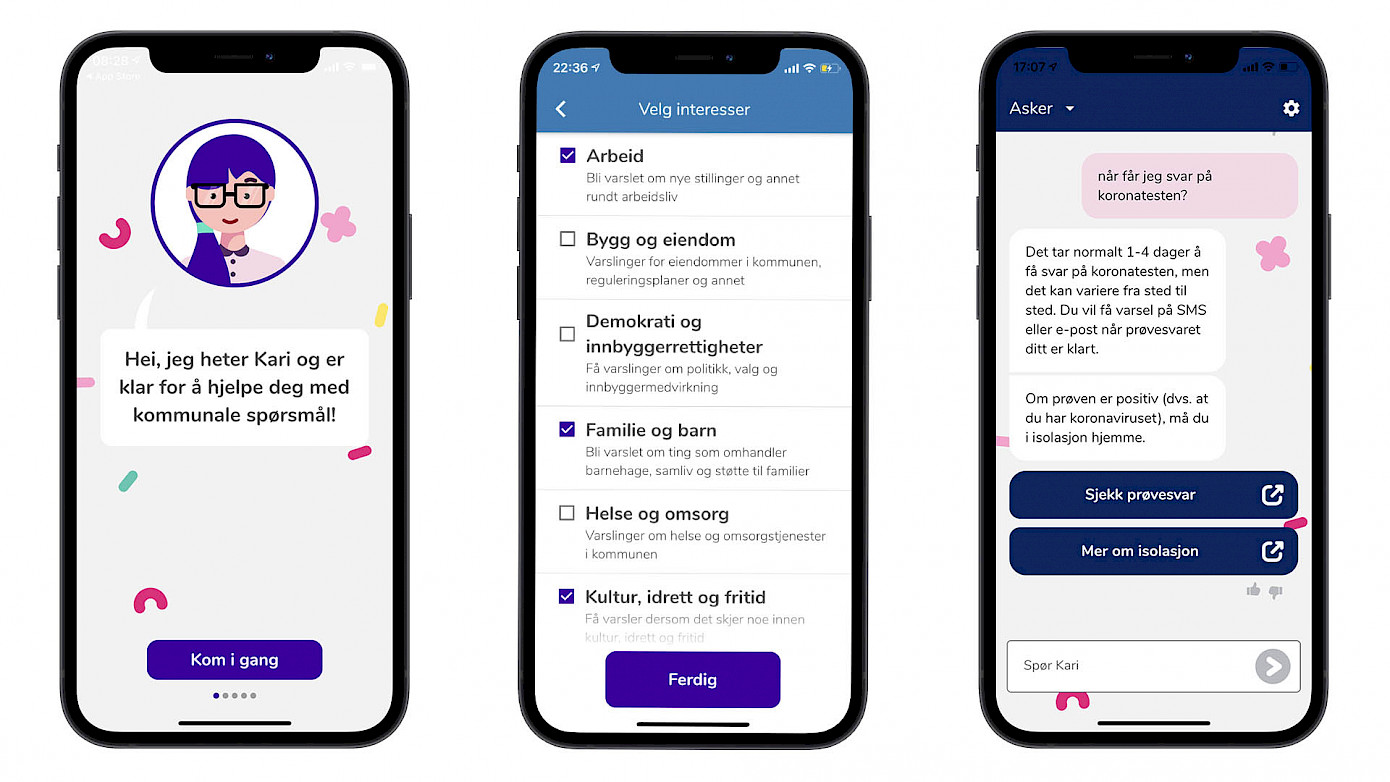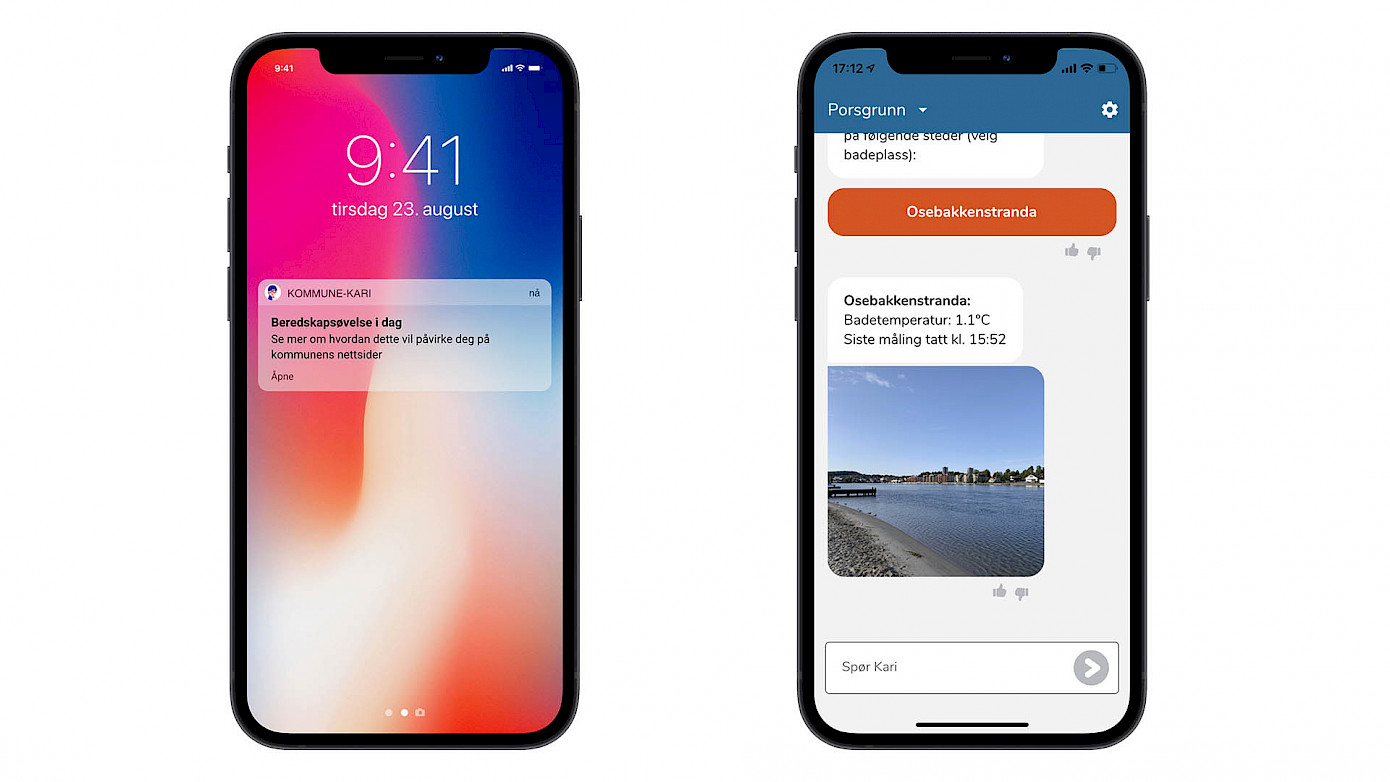Citizens in Norway now have even easier access to the world’s first multi-city conversational AI platform via the Kommune-Kari app
STAVANGER - June 2, 2021
Kommune-Kari has become synonymous with instant, friendly assistance in the public sector throughout the Nordics. Originally launched in October 2017 in Sandefjord, Norway, the world’s first multi-city conversational AI platform is, today, live across 118 municipalities in Norway, Sweden, Denmark and Finland.
Developed in collaboration with Sem & Stenersen Prokom, and powered by boost.ai’s no-code conversational AI platform, the virtual municipality agent makes it easy and quick for more than 27 million citizens in the Nordics to find the information they need regarding their local municipality by answering questions and automating actions on more than 6,000 topics.

Today marks the launch of the Kommune-Kari app, the next milestone in Kommune-Kari’s mission to bring local governments and their citizens closer together. Available on iOS and Android, the Kommune-Kari app is designed so that users can have an open dialogue with their local municipality, 24/7 and directly from their smartphone without needing to visit a website.
Users can chat with Kommune-Kari via the app, making it easier than ever to find answers to questions about local legislation and receive important information and announcements via push notification. The app also supports multiple municipalities, a useful feature for users who have properties in more than one district. Initially launching in Norway, the Kommune-Kari app will be available in other markets soon.

With the introduction of the Kommune-Kari app to smartphones, Prokom and boost.ai are looking to expand the platform into more Nordic and European markets in 2021. Usage of Kommune-Kari in Norway increased by 38% between March 2020 and March 2021, surpassing more than 500,000 conversations and over 1 million individual messages per year.